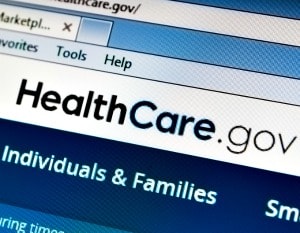Survey: Obamacare Confusion Looms Over Open Enrollment

By Brian O’Connell
A new study by insuranceQuotes shows that 41 percent of Americans don’t know when the Affordable Care Act’s open enrollment period is, and 14 percent say they thought the law, sometimes called Obamacare, was cancelled.
With so much riding on health care outcomes, and so much confusion about the open enrollment portion of the law, why are so many Americans misinformed about Obamacare, and about open enrollment?
That’s a good question and the study offers interesting responses.
RELATED: Trump Expands Short-Term Health Insurance Options
The InsuranceQuotes survey, which tracked responses from 1,005 respondents, generated the following takeaways on Americans outlook on the ACA heading into the new open enrollment season, which runs from Nov. 1 to Dec. 15.
- 41% don’t know what open enrollment means.
- 14% believe the ACA has been cancelled outright.
- 38% are unaware that the ACA is still in effect.
- 24% of Americans say they view the ACA less positively after the 2016 election.
- 18% say their view on the ACA have been “more favorable” since the election.
Additionally, U.S. adults seem to have little faith in Team Trump to make health care better going forward. Thirty-nine percent say that President Trump will make U.S. health care worse, compared to 24 percent who say he will make it better.
Additionally, 35 percent of Americans say Republicans are more responsible for problems with the U.S. healthcare system, compared to 29 percent who say that Democrats are more responsible (16 percent say that both parties are equally responsible, according to the survey.)
Ill-informed due to politics?

Health care experts say that general confusion is the new normal for Americans on the ACA, and there’s plenty of blame to go around.
“In addition to low health literacy, one of the reasons Americans are confused about the ACA and open enrollment is because of efforts by politicians to undermine the ACA,” says Nicole Rochester, physician and health care navigation expert.
Unfortunately, health care in America has become a partisan issue, Rochester says.
“Due to decreased funding for both advertising and insurance ‘navigators’ as well as the rhetoric on TV that “the ACA is dead”, many Americans mistakenly believe that they can no longer purchase health insurance through the marketplace,” she says.
Other health care professionals agree with that sentiment.
“The Trump administration undermined the ACA through executive orders and
its tax bill,” says Etienne Deffarges, a health IT entrepreneur and the author of “Untangling the USA Untangling the USA: The Cost of Complexity and What Can Be Done About It.”
The Republican tax bill signed into law on Dec. 22, 2017 repealed the tax penalty one would owe under the ACA if one failed to maintain minimum essential coverage, Deffarges says.
“This action did not end the ACA, not even its mandate to purchase health insurance, the ‘individual shared responsibility provision’,” he says. “Yet, on Dec. 26, 2017, Trump tweeted: ‘Based on the fact that the very unfair and unpopular Individual Mandate has been terminated as part of our Tax Cut Bill, which essentially Repeals (over time) Obama Care, the Democrats & Republicans will eventually come together
and develop a great new HealthCare plan.’ ”
“This statement is one of many made by Trump and Republicans that likely have confused a lot of people regarding the actual status of the ACA,” he adds.
CHECK OUT: Can I Get Medicare to Cover My Glasses?
Since politicians have seemed to botch the job on building a positive profile on the ACA, it’s really up to health care professionals to get the word out.
“In my opinion, insurance brokers, health advocates, and anyone else with a thorough understanding of the ACA needs to educate those in the community,” she says. “It can be as simple as making sure your friends and family members are aware.”
Another part of the ACA awareness problem — Americans largely are extremely disengaged when it comes to their benefit packages and open enrollment, experts say.
“This has a lot to do with the way we access our benefit information,” notes David Reid CEO of EaseCentral, a human resources and benefits enrollment platform located in San Francisco. “For the most part, if you have a question or issue with your benefit package, you need to set up an appointment with your HR rep who will likely ask you to complete a packet of paper work in order to make any changes. This turns a lot of people off from engaging entirely.”
Reid believes that in order to create a higher level of engagement benefit, information and tools should be available where people visit the most, online and on their mobile phones. “By simplifying access to this information and allowing people to be self-sufficient in their needs, engagement goes up significantly,” he says.
ACA enrollment tips
To raise awareness and educate health care consumers, Rochester offers some helpful tips for Americans to successful navigate the ACA’s open enrollment period and to maximize their ACA experience going forward:
- Know the numbers. Pay special attention to the open enrollment period. “You won’t be able to purchase health insurance through the marketplace after Dec. 15 unless you have special circumstances, and will have to wait until the following year,” Rochester says.
- Have a plan. Think carefully about the healthcare needs of your family prior to choosing a plan. Does anyone in your household have a chronic illness? Does anyone take prescription medications? Are there any anticipated surgeries or other procedures? “Many people automatically choose the plan with the lowest monthly premium, but having a large deductible can be devastating for families who utilize the healthcare system frequently,” she says.
- Do your due diligence. On or after 11/1/18, spend time on www.healthcare.gov reviewing the various health plans offered in your state. “Search the provider network to see if your current doctors participate with the plan,” Rochester advises. “Review the formulary to see if your prescription medication will be covered.”
The most important tip from Rochester? It’s all really up to consumers to get health care right.
“Enrolling in health insurance is an active, not a passive process,” she says. “You need to be informed and proactive to get the best experience.”
